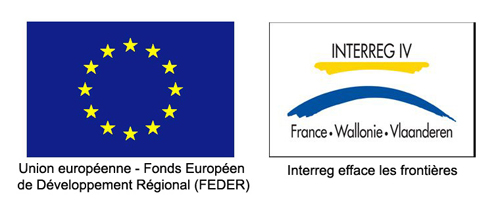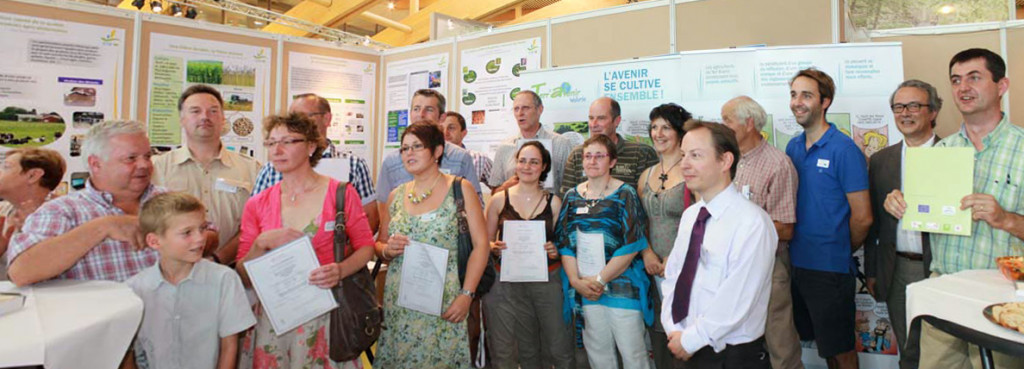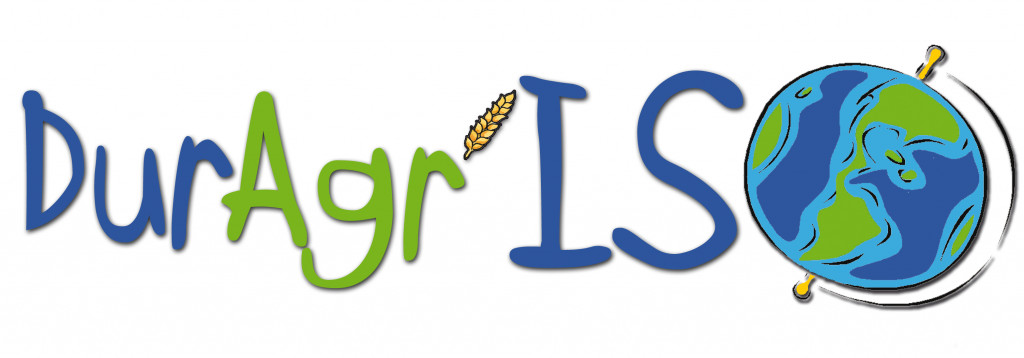Context
The food challenge and environmental issues now place agriculture at the center of many debates. Given the extent of the challenges the sector has to face, it is important to help it to innovate, to take more into account of the people involved by this activity, to better integrate the environment in the orientations of the farms and to trace new futures.
It is in this context that the project Interreg DurAgr'ISO14001 enrolled. Indeed the complexity of the constraints that European farmers have to manage has led the projectpartners to move towards approaches of progress where farmers are stakeholders in order to better take into account the specificities of their farms, territory and partners and sectors with which they work.
Objectives
DurAgr'ISO14001 aimed to the establishment of a trans-regional approach of sustainability management of farms which start with an environmental certification. This approach were tested in the Franco-Belgian 3 regions : Picardy, Flanders and Wallonia.
Expected results
This project takes place in the Interreg IV France-Wallonia-Flanders program (http://www.interreg-fwvl.eu), with the support of the Regional European Development Fund of the European Union (UE -FEDER), Walloon, pronvince of Occidental Flander, ADEME and Picardie region. The objectives of the project were :
(1) A comparison of the systems of environmental management applied in France, Wallonia and Flanders on the basis of their advantage for farms, their conviviality and their level of compatibility towards the rules (European and local legislation, EurepGAP, Milk Chain Quality, IFS, …) and the choice of a common tool adapted, useful for any type of farming system studied, and based on the different partners’ expertise, the environmental certification (ISO14001) and the social responsability (ISO 26000 guide).
(2) The validation on a representative sample of farms of the method developed for the implementation of the global approach of sustainable development.
(3) The spread of the validated method on about 117 farms situated in the 3 regions concerned by the project.
(4) The presentation of the approach to allow an extension on other European farms. Interests have already been manifested in some nearby regions.
Results obtained
This project started in March 2009 and finished in June 2012.
The first step was to assess tools available to support farmers in this context. As regards environmental certification, the Terr'Avenir scheme, launched in Picardy and resulting in the certification of an association of French farms, appears the most appropriate in that it was conceived by farmers looking for communication tools and also in view of its successful development. Indeed the scheme is based, firstly, on the use of computer tools accessible via a common portal, with a reliable data processing architecture including, in particular, the immediate production of a personal plan of action based on an environmental diagnosis and assessment of compliance with the regulations, which is a requirement for certification, and, secondly, on ongoing training enabling farmers to take the scheme forward. As well as pooling costs, group working enables all the farmers to benefit from one another's input. Another reason for taking a group approach is to try to ‘resocialise' farmers whose work takes up so much of their time and energy that they often lose touch with the rest of society.
The adaptation of this scheme to the Belgian context, the development of a regional regulations monitoring scheme in relation with changing local administrative requirements and the translation of the tools into Dutch took place, with Walloon and Flemish pilot groups.
On another side, in terms of sustainability, various methods have been assessed, including IDEA and MOTIFS (tools based on recognized indicator calculators). However, assessing sustainability via indicators produces a picture of a farm at a given time, with the choice of indicators depending either on the photographer or on the aim pursued. That choice is therefore always slanted, sometimes aiming to quantify mastery of technical practices and sometimes, an overall assessment of the farm. When designing the scheme it is important to have access to a database of recognized indicators, but it appeared difficult to establish these without defining aims. That being so, understanding both the environmental and the economic and social aspects (pillars of sustainability) may require a new way of quantifying and managing them. Accordingly, the project partners have chosen the ISO26000 standard, which provides guidance to organizations on social responsibility, as a basis for developing the methodology most suited to sustainability. A cross-border think tank was set up in 2010 with workshops bringing together representatives of the partners from the three participating regions and also a pilot group of farmers already ISO14001 certified, with the necessary objectivity to take part in defining this notion of social responsibility in agriculture before integrating it in order to improve their own practices. A referential of commitments and key practices for a responsible agriculture has been established, and also a method of self-assessment. First tools of CSR diagnostic and an experimental method to define an integrated strategy, based on CSR have also been developed in the concerned regions.
At the end, the project DurAgr’ISO14001 brought together 110 farms around this innovative approach based on common values of the respect of environment and society as a whole. It led to 5 major results :
- the transposition in Belgium of an approach initiated in France 10 years ago, by precursors farmers in Picardie ;
- the adaptation of the French IT tools for the Flemish and Walloon contexts (tools of environmental analyse and of evaluation of regulatory compliance) ;
- the creation of a federal association of Belgian farmers, which carry the environmental certification ;
- the support of 18 Belgian farmers to prepare them to the environmental certification. It’s the first collective environmental certification in the Belgian agricultural sector. These 18 farmers joined the 215 French farmers already certified through the Terr’Avenir network en France ;
- a link between the farmers of these 3 regions, who have a lot to learn from each other, both on technical and strategic aspects. This link will endure after the project, through the Terr’Avenir/Beloftevol Boeren network.
This project has been elected « Strategic Project 2012 » by Interreg IV program, and farmers involved in DurAgr’ISO were awarded by the Professional Price 2011 of the Phytofar institute and the Price 2012 of Sustainable Development of the Province of Namur.
Contribution
Partners
-FUGEA, Fédération Unie des Groupements d’Eleveurs et d’Agriculteurs (W).
-PNPC, Parc Naturel du Pays des Collines (W).
-PeriG Consultants (Fr).
-Association Terr’Avenir Picardie (Fr).
-INAGRO (Fl).
Funding
- CE - Regional politics - INTERREG IV
- DGARNE





